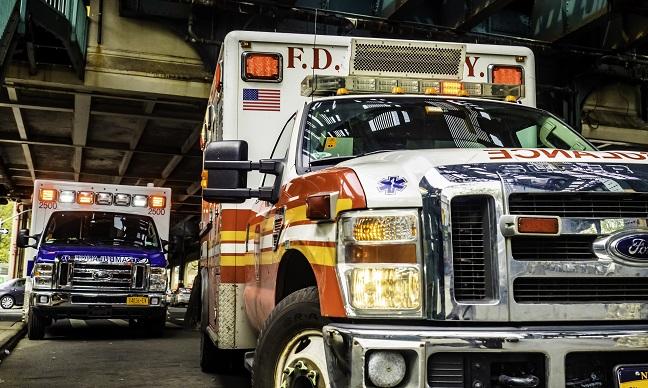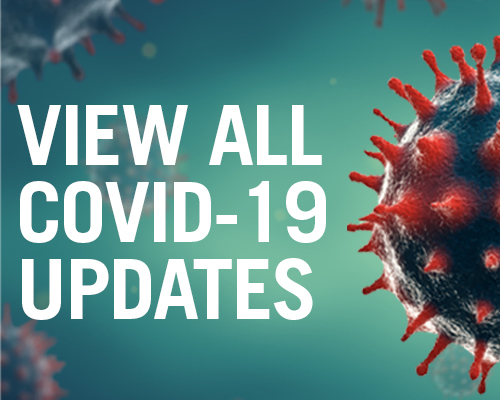NYC’s Cardiac Arrest Spike in COVID-19 Tracks With Missing STEMIs
Out-of-hospital cardiac arrests and related deaths spiked while ACS admissions fell, offering lessons for areas yet to surge.

As COVID-19 battered New York earlier this year, the city saw an upswing in out-of-hospital cardiac arrest (OHCA) cases that correlated with a decrease in hospitalizations for acute coronary syndromes, according to an analysis of data from the Fire Department of New York (FDNY) and the Northwell Health system.
These results confirm patterns widely seen in hard-hit regions, such as northern Italy, and suggest that patients have been reluctant to seek—or unable to obtain—help for acute conditions during the pandemic.
“Certainly, some OHCAs are directly related to COVID-19 infection itself,” Stavros E. Mountantonakis, MD (Northwell Health, Manhasset, NY), and colleagues write in their paper, recently published in the Journal of the American College of Cardiology. “However, the COVID-19 outbreak impacted access to healthcare,” they add. “The public was encouraged to stay home. The FDNY was asked to withhold CPR and declare patients DOS [dead on the scene] if they were unable to resuscitate them.”
Senior author Laurence M. Epstein, MD (Northwell Health), told TCTMD said that New Yorkers avoided going to hospitals “because of the fear and the message that they were getting about staying home.” A strength of this study, he said, is that it harnesses citywide numbers from the FDNY as well as records from Northwell Health, a consortium of 23 hospitals that’s the largest healthcare system in New York.
“The concern is that [we may see] long-term sequelae of folks who stayed home, had heart attacks, and now are going to show up with heart failure and arrhythmias and LV dysfunction because they didn’t get timely intervention,” he explained.
Even in COVID, emergencies are still emergencies. People need to seek care, because it’s more dangerous not to seek care, despite COVID. Laurence M. Epstein
Epstein and colleagues focused on the period from March 20 through April 22, 2020. During this time, the FDNY documented 7,249 OHCAs; among them, 71% resulted in a DOS declaration. Incidence followed a bell-shaped curve that peaked April 6. Interestingly, “COVID-19-related NYC deaths followed a similar curve with 11,474 COVID-19 deaths peaking on April 7,” they report.
A year prior, March 20 to April 22, 2019, there had been a “steady daily incidence” of 2,242 OHCAs, with 38% DOS. Northwell hospitals admitted 2,084 patients with a primary diagnosis of ACS during this time frame—during the COVID-19 surge, the number hospitalized was just 911, a 56.3% reduction.
Compared with 2019, the 2020 data represent “a 4.97-fold increase in OHCA and almost doubling of DOS,” the investigators observe.

What these results show, Epstein pointed out, is that people were not only avoiding the hospital, but they also weren’t even calling 9-1-1. Some might have been afraid they’d contract COVID-19. Reassuringly, however, antibody testing among tens of thousands of Northwell employees has shown this not to be the case, he said—in fact, their tests were less likely to be positive than those in the surrounding community. “It speaks to the fact that [personal protective equipment] actually works and the protocols taken in the hospital were effective. We [also] did not see widespread patients getting infected in the hospital,” he noted.
Originally, the researchers had set out to document what had happened in New York City. “But with what’s going on in the rest of the country right now, where people are in the middle of their surge, I think the important message is: even in COVID, emergencies are still emergencies. People need to seek care, because it’s more dangerous not to seek care, despite COVID,” Epstein urged.
Caitlin E. Cox is Executive Editor of TCTMD and Associate Director, Editorial Content at the Cardiovascular Research Foundation. She produces the…
Read Full BioSources
Mountantonakis SE, Saleh M, Coleman K, et al. Out-of-hospital cardiac arrest and acute coronary syndrome hospitalizations during the COVID-19 surge. J Am Coll Cardiol. 2020;Epub ahead of print.
Disclosures
- Mountantonakis and Epstein report no relevant conflicts of interest.


Comments